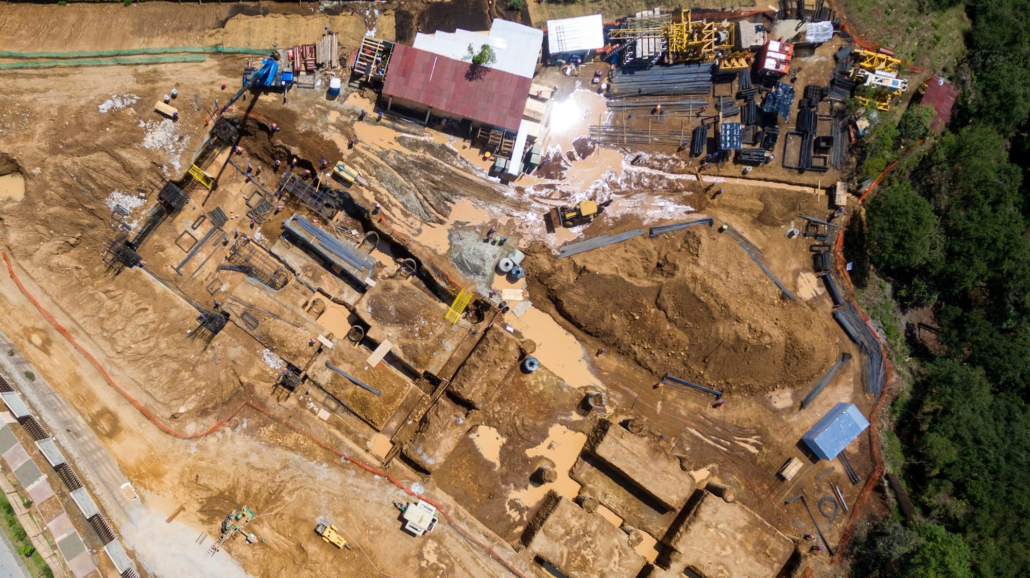Bid low and look high – How to deal with unfair offers in construction law
/in Commercial lawLEGAL+ NEWS
Problem description
Many fellow sufferers will be familiar with the following constellation: As the client or building owner, you have opted for the most favorable of the offers obtained, which are comparable in quality. It is not uncommon for the rude awakening to come with the final invoice at the latest. The final costs often exceed the offer many times over.
What went wrong? First of all, when it comes to the question of whether the “additional payment” can be demanded from the contractor commissioned, it is of course of central importance what was agreed in the contract ultimately concluded on the basis of the offer (see the following article).
But what happens if the contractor has submitted a so-called bait offer? This refers to an offer that the contractor has deliberately, i.e. intentionally, submitted at a particularly low price in order to “land” the contract.
It is surprising that this practice receives little attention in case law, although this approach is by no means rare.

Solution approaches
The starting point is the question of whether a bidding contractor is permitted to underestimate the quantities and expenses required to perform the work for which it is bidding in order to then take into account the additional quantities and expenses that will almost certainly be required later in the form of supplements. Such unfairly acting contractors regularly rely on gaps in the specifications to justify their subsequent additional charges.
In principle, this procedure is not permitted!
The strategy of“bid low and add high” is unlawful. The bidding company may not simply retreat to a particularly favorable calculation approach in order to improve its prospects of being awarded the contract with the disadvantageous consequence for the client that the risk of a subsequent supplement increases accordingly.”
This can be clearly inferred from the case law of the BGH.
By way of example, the notable judgment of the BGH of February 25, 1988 (case no. VII ZR 310/869), which has become known under the keyword “frivolity”, should be mentioned. In this judgment, the BGH stated (note: “plaintiff” refers to the “frivolous” bidder):
“The clients must have been aware that the soil and water conditions were only incompletely specified in the tender documents. Since the soil report did not contain any water permeability values and pumping tests had obviously not been carried out, only rough estimates could be considered from the outset. If the plaintiffs did not want to accept this in their calculation, they should have asked the defendant to supplement the tender documents accordingly. Therefore, there is much to suggest that the principles which the Senate has long developed for the case that a specification is recognizably incomplete for the contractor should be applied here (e.g. MDR 1966, 317 = NJW 1966, 498; most recently Senate judgment, MDR 1988, 43 = BauR 1987, 683).
Ultimately, however, this can be left to one side because a claim for damages is already ruled out here for another reason. The basis for a claim for damages based on culpa in contrahendo is always “disappointed trust” (Senate judgment, MDR 1966, 317 = NJW 1966, 498; cf. also Ingenstau/Korbion, VOB 10th ed. A § 9, para. 5). This cannot be said to be the case here because, according to the findings of the Higher Regional Court, the plaintiffs calculated “frivolously” in their offer and accepted the present dispute about the additional costs incurred. How correct this statement is is shown above all by the fact that the plaintiffs in their offer for the water maintenance costs for lot 2 only estimated DM 2.00 per running meter, while the plaintiff to 1 had shortly before demanded DM 75.00 per running meter for lot 1. The fact that in the case of the lot in question here it was not plaintiff 1 alone, but rather together with plaintiff 2, who submitted the offer, is irrelevant, since both bidders clearly had the calculation documents from the earlier offer for lot 1 at their disposal. The reason given for the difference in approach, firstly that the costs for the dewatering work for lot 2 had been partially allocated to the construction site equipment, and secondly that it had been possible to calculate “lower” because a lot of groundwater had already been extracted from the construction area by the dewatering for lot 1, does not explain such a wide divergence in the cost estimates for the two lots.
Rather, this disproportionately large, objectively unjustifiable difference shows that the plaintiffs ultimately calculated more or less “in the blue” – if not even “speculatively” – without any reasonable reference to the invitation to tender (cf. Senate judgment, MDR 1988, 43 = BauR 1987, 683, 685 = ZfBR 1987, 237, 238). In doing so, they not only significantly increased the risk that unforeseeable “additional claims” would later be made (in this case around one hundred times the bid price stated for the dewatering) (cf. Senate loc. cit.), but virtually conjured up the risk in order to be able to take advantage of it without jeopardizing their prospects of being awarded the contract. Anyone who acts in this way cannot invoke “disappointed trust”.
The following principles can be inferred from the above extract, which stand in the way of any subsequent proposals:
- Gaps in supply must not be accepted in silence.
- Calculating “frivolously” is prohibited.
- Supplements cannot be based on tenders submitted “in the blue”.
Conclusion:
Anyone who finds themselves in the situation described above should, in addition to general contractual agreements, also carefully examine the original offer to determine whether it was a “frivolous” offer.


LATEST ARTICLES

Guide to International Civil Procedure: Recognition and enforcement of foreign judgments in Germany
Once a judgment has been successfully obtained against a German debtor abroad (in a third country), the creditor is faced with the important practical question of how to actually get his money.
If the German debtor does not pay voluntarily, only the enforcement of the judgment will help. However, since in most cases the German debtor only has assets in Germany that could be enforced, the foreign judgment must be enforced in Germany. This requires that the foreign judgment has first been declared enforceable by a German court. This declaration of enforceability is the subject of separate court proceedings against the debtor in Germany, at the end of which, if successful, an enforcement order will be issued.
The following article deals with the content of these proceedings.

Guide to appeal law – Importance of the content of the grounds of appeal for the scope of review by the court of appeal
The view that the content of the grounds of appeal determines the scope of review by the court of appeal is widespread. According to this view, the grounds of appeal must contain all complaints regarding the first instance judgment that the appellant wishes to have reviewed by the court of appeal. If the appellant omits a complaint, this would mean that the court of appeal itself would have to ignore legal violations that it has recognized and deemed to be significant.

Possibilities of contesting a settlement concluded in court
Civil proceedings are often concluded by way of a settlement between the parties during the course of the proceedings. This is often done with the help of the court. Practice shows that such a settlement, despite the involvement of the court, is not without its pitfalls. I would like to provide an overview below.
CONTACT

+49 (40) 57199 74 80
+49 (170) 1203 74 0
Neuer Wall 61 D-20354 Hamburg
kontakt@legal-plus.eu
Benefit from my active network!
I look forward to our networking.
This post is also available in: DE


